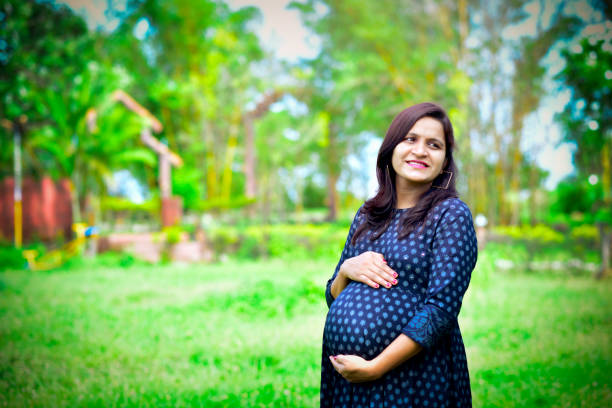Pregnancy is a beautiful and transformative experience for women but it can also bring about various physical and emotional challenges. Stress during pregnancy is common due to the changes in your life and body. The physical, emotional, and hormonal changes that occur during pregnancy can sometimes make you feel anxious and stressed. But if you are feeling anxious and stressed day in and day out, then it can have adverse effects on both the mother and the unborn child. It is crucial for expectant mothers to prioritize their mental and emotional well-being to ensure a healthy pregnancy. In case you are feeling persistent, excessive worry and stress, then seek help from a doctor to relieve stress during pregnancy; otherwise, it can affect your baby.
In this article, we look at possible ways to relieve stress during pregnancy, allowing mothers to navigate this transformative journey with ease and joy.
Healthy diet

Eating a healthy and nutritious diet is very important during pregnancy. A healthy and nutritious diet will also help you cope with stress. Foods rich in B vitamins, such as whole grains and whole rice, increase the amount of the anti-stress hormone serotonin in your body. Omega 3 fatty acids found in oily fish and seafood may also help relieve depression. Drink a sufficient amount of water during pregnancy.
Take rest and sleep
Take out time for your proper sleep and rest. Rest is not only beneficial for you but also a boon for your baby. So, if you don’t have enough energy to do the extra work, it’s okay to turn down the job even if you have some free time.
Regular Exercise
Exercise plays a vital role in reducing stress levels during pregnancy. Engaging in moderate physical activities like walking, swimming, and prenatal yoga can release endorphins, commonly known as “feel-good hormones.” These endorphins not only elevate mood but also alleviate stress and promote better sleep. However, it is important to consult a healthcare professional before starting any exercise routine and to choose activities that are safe for pregnancy.
Yoga and meditation

Indulge in yoga and meditation during pregnancy; yoga not only strengthens your body but also helps you calm your mind and ease labor pain. Practicing meditation for even a few minutes each day can provide mental clarity and reduce anxiety. There are various guided meditation apps and prenatal yoga classes specifically designed for pregnant women that can be beneficial.
Get a massage
Massage provides relief from swollen hands and feet and body aches during pregnancy. Also, getting a prenatal massage is an excellent way to relieve stress. Prenatal massage is a therapeutic technique that involves gentle strokes and pressure on specific areas of the body to alleviate muscle tension and promote relaxation. It can help reduce anxiety, relieve physical discomfort, improve sleep, and enhance overall well-being. However, it is important to consult a licensed prenatal massage therapist who specializes in working with pregnant women.
Spend time with family
If you have any concerns in your mind, then share them with your family. For example, if you are worried about whether your baby is healthy or whether it will be born safely, you are not alone. Talking about these concerns can really benefit you. You can talk to your husband, mother, or a friend who is already a mother.
Try to spend time with your husband. Because after the birth of the baby, you will not get enough opportunity to spend alone time with him. Talking openly about your fears and anxieties is a great way to adapt to motherhood and parenthood.
Make a budget and do savings
In low-income or middle-class families, it is common to be worried about the budget because there is no doubt that the birth of a child in the house will have some extra expenses. You have to do savings beforehand. If you are doing a job, then know properly prior about what pay you are entitled to while on leave. Make a list of essential things you need so that you feel stress-free.
Don’t overthink delivery
If you are worried about going into labor and how you are going to cope with the pain, join an antenatal class to learn more about what happens during labor. If you are so scared of going into labor and giving birth that you would rather have a caesarean than a normal delivery, talk to your doctor about it. With the right advice and support, you may be able to overcome this fear.
Also read: Stages Of Child Development Every Parent Must Know
Time in Nature

Spending time in nature can have a profound impact on stress reduction. Taking walks in parks, gardens, or nearby natural landscapes can help pregnant women reconnect with nature and experience a sense of tranquility. Fresh air, sunlight, and the sounds of nature have a calming effect on the mind and body.
Time for Self-Care
Taking time for self-care is crucial during pregnancy to nurture both the body and mind. Engaging in activities that bring joy and relaxation, such as reading, writing, practicing hobbies, or pampering oneself, can significantly reduce stress. Setting aside regular intervals for self-care allows expectant mothers to focus on their own needs and rejuvenate their spirits.
Stay Organized and Plan Ahead
Stress can often arise from feeling overwhelmed or unprepared. By staying organized and planning ahead, expectant mothers can minimize stress triggers. Creating a pregnancy calendar, preparing a checklist of necessary tasks, and organizing the baby’s essentials in advance can alleviate anxiety and provide a sense of control.
Conclusion
Pregnancy is a very beautiful aspect of your life; enjoy it to the fullest, and try to be happy. If your stress levels are high enough that you feel completely overwhelmed, talk to your doctor. If you’re taking any medication for depression, it’s important not to stop it suddenly without a doctor’s consultation.







